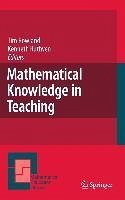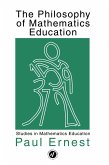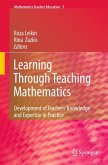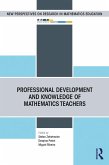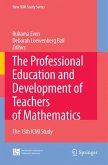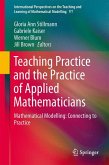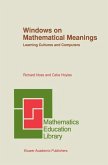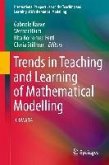Dieser Download kann aus rechtlichen Gründen nur mit Rechnungsadresse in A, B, BG, CY, CZ, D, DK, EW, E, FIN, F, GR, HR, H, IRL, I, LT, L, LR, M, NL, PL, P, R, S, SLO, SK ausgeliefert werden.
"This book focuses on the complex issue of mathematical knowledge in teaching. ... This book is essential reading for anyone interested in teaching mathematics. It brings together the considerable research and scholarship of the various contributors and provides a detailed, yet understandable, picture of the issues surrounding teachers' mathematical knowledge. The book most certainly meets its aim of enhancing theory and practice in mathematics teacher education and the student experience throughout education." (Rosemary Cann, Educational Review, November, 2011)

